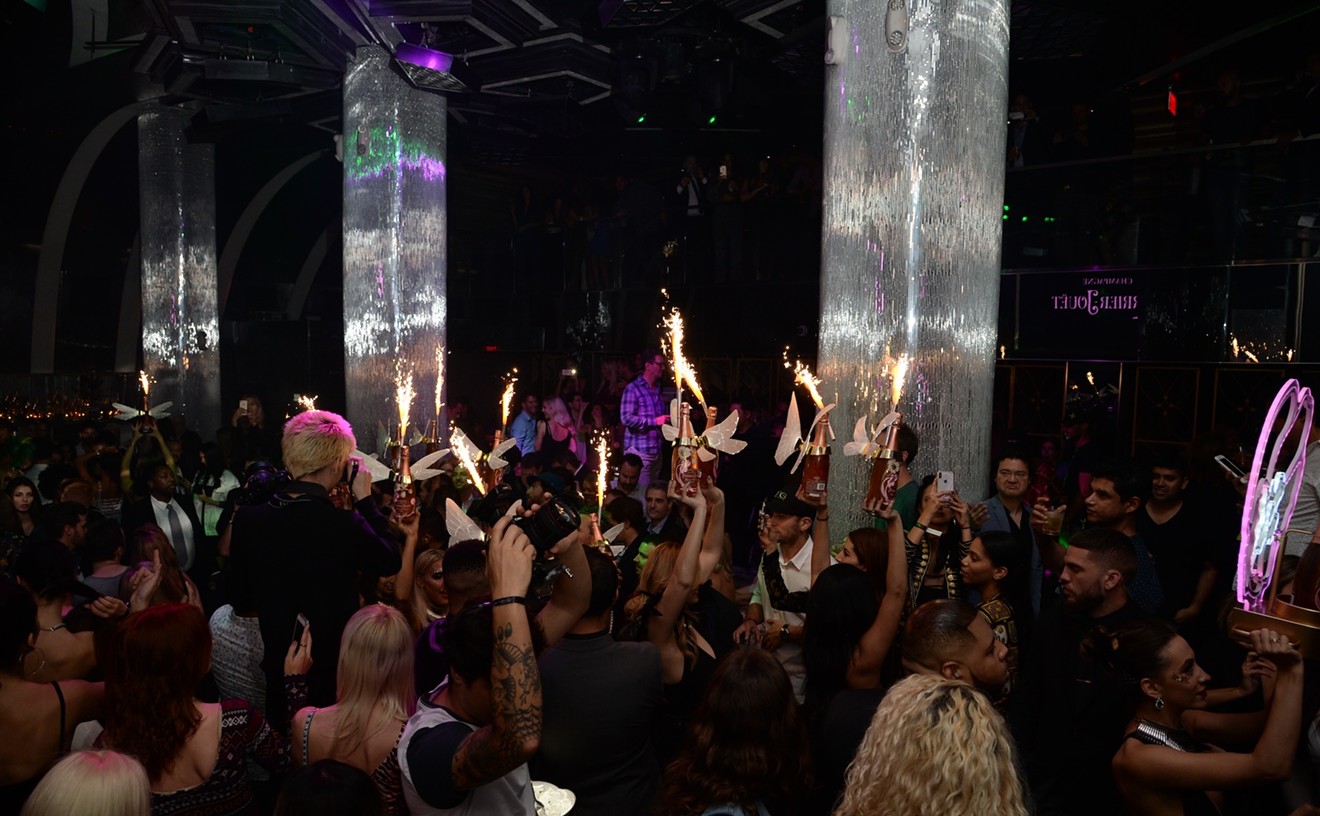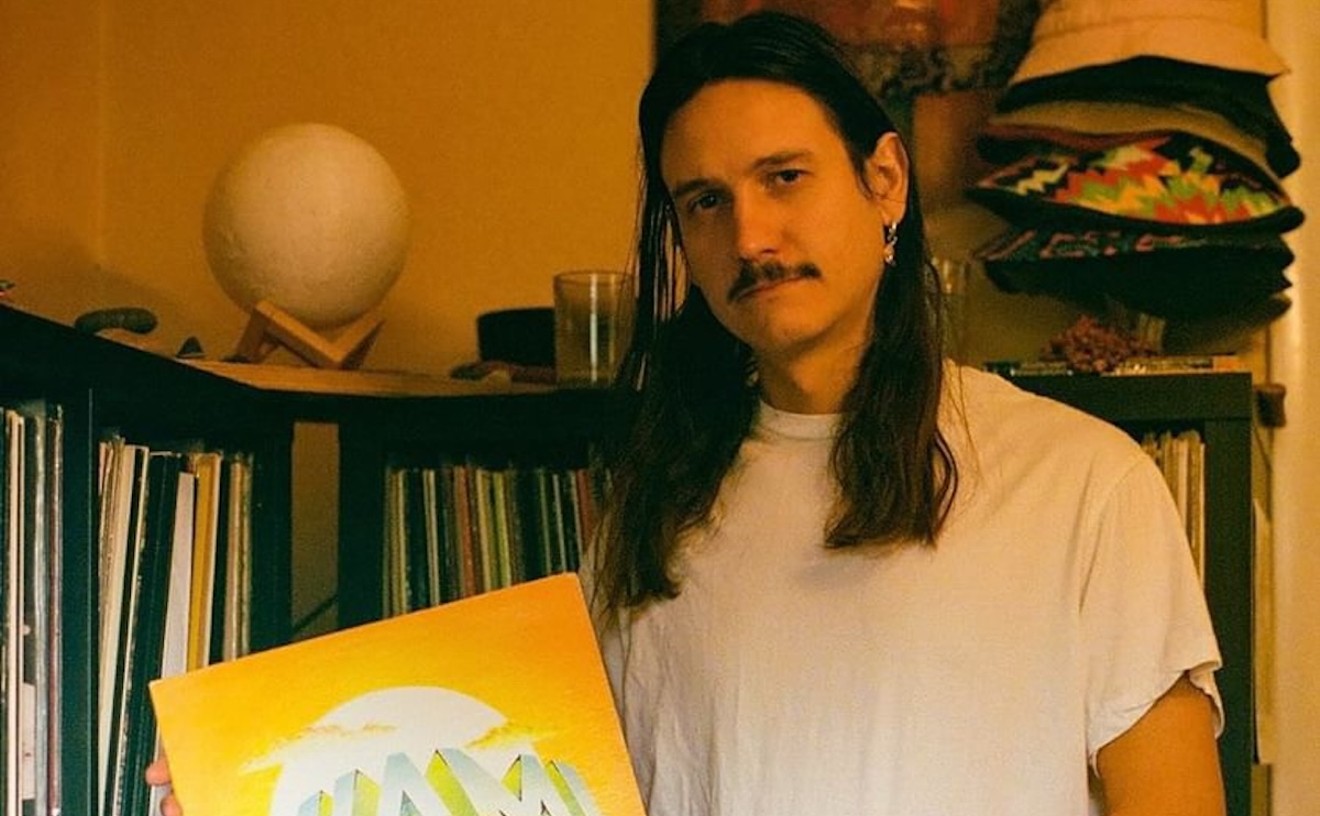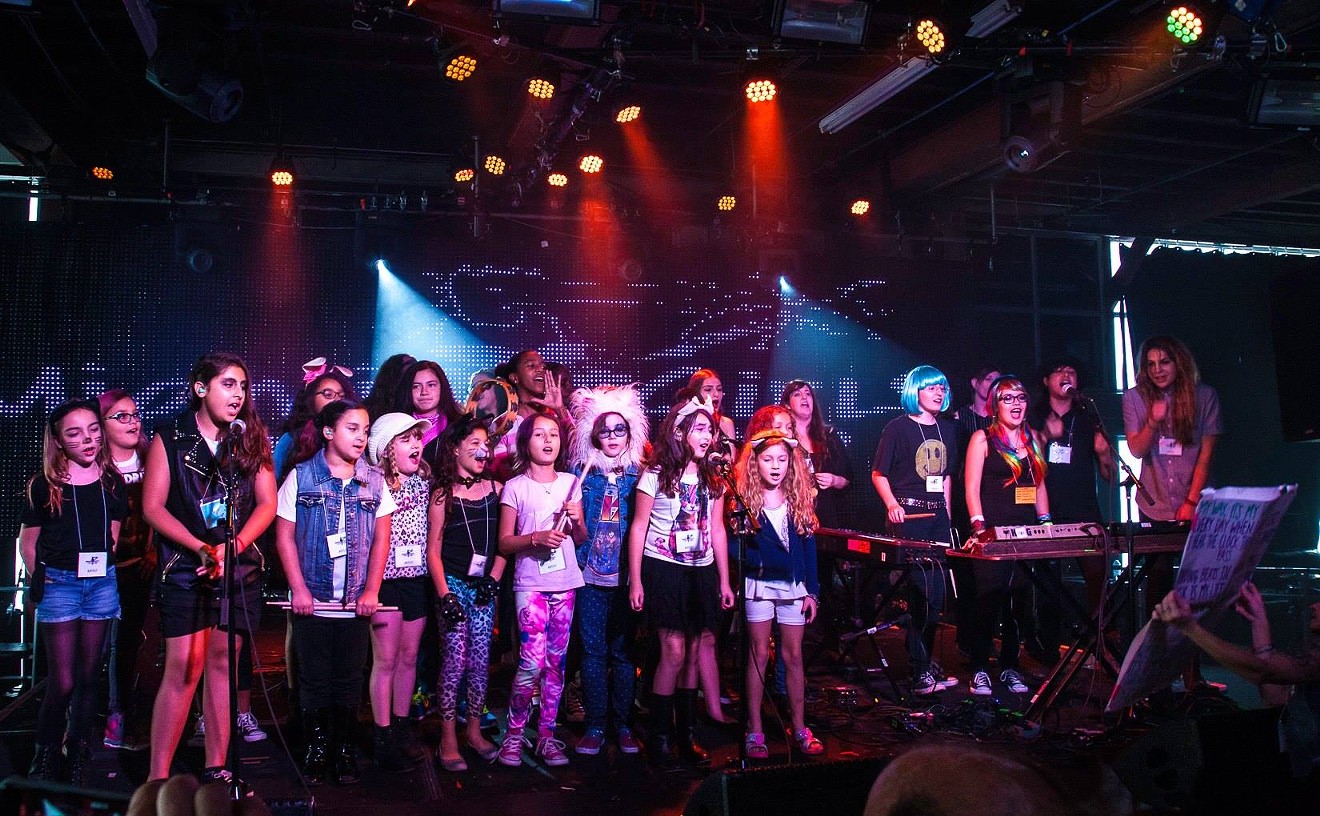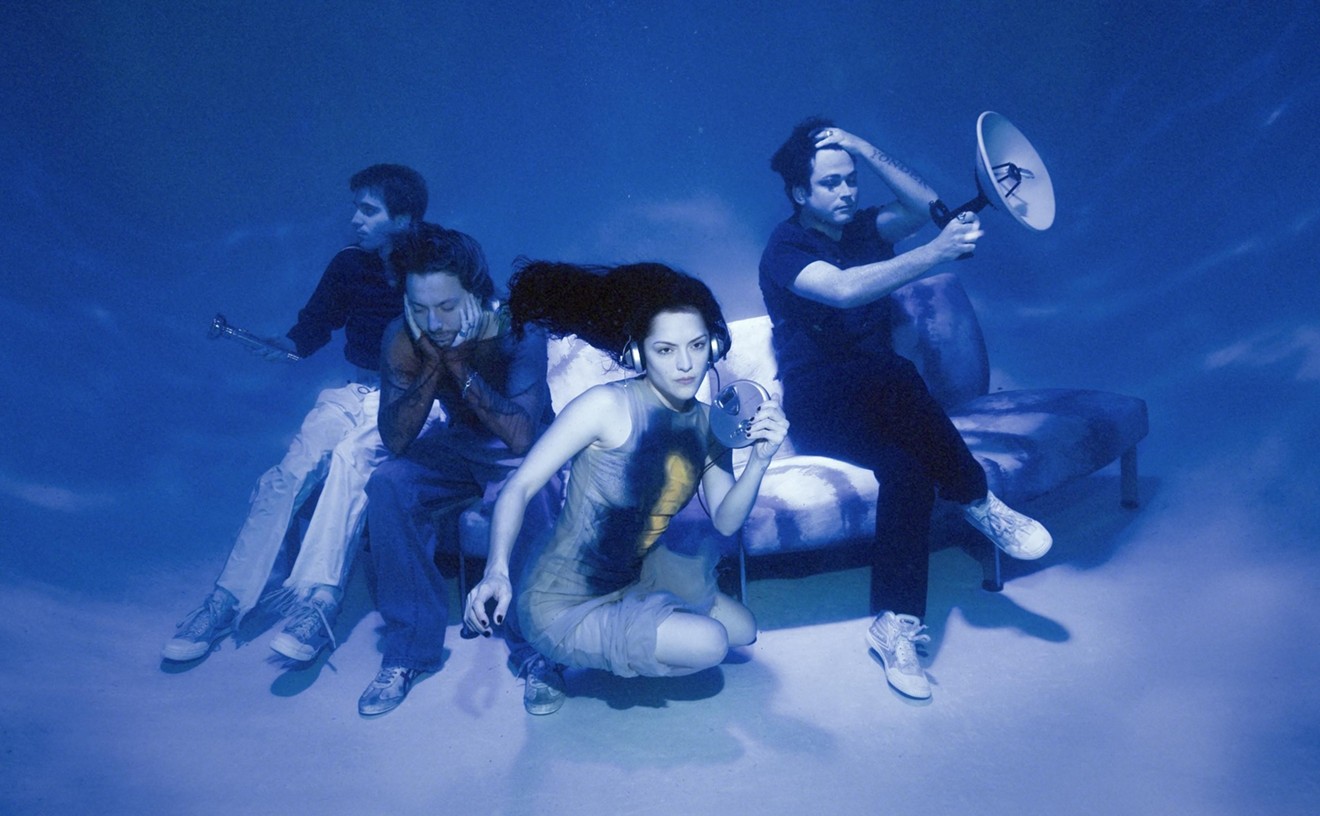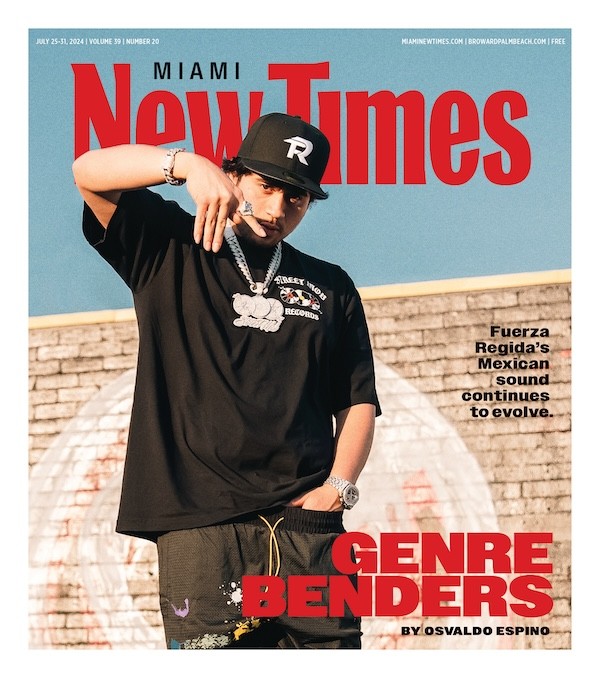After years of debate, most agree the birth of hip-hop can be traced to an exact day and place: August 11, 1973; 1520
"I wanted to DJ, but I didn't have enough money to buy turntables."
tweet this
Two years later, DJ EFN was born on the opposite end of the country, Los Angeles, California. But his love for the genre known as hip-hop would guide the trajectory of the rest of his life.
"I wouldn't say I was a leader," EFN says humbly. "There was a scene that I was a part of, and there were people that were doing it before me."
But EFN — born Eric F. Narciandi — has been at it longer than most. Before DJ Khaled was claiming to be the best in the 305, Narciandi, now 41, had already become a staple in the hip-hop industry and well known on a local level as a true pioneer of the early days of Miami's rap scene. His initial contributions to the industry gave Miami the attention it needed before Trick Daddy, Pitbull, and Flo Rida put the city on the map, yet he's well-versed in the gospel of his predecessors.
On a sweltering Saturday afternoon, Narciandi sits in a recording studio near Marlins Park, the same studio where he produced artists such as Miami natives ¡Mayday!. The walls are covered in a blanket of plaques honoring the eclectic rap band's accomplishments over the past decade, many of which owe
It's been a long road for Narciandi. His father moved to Miami after separating from his mother when Narciandi was only 5 years old. He traveled back and forth between South Florida and Los Angeles throughout his childhood. By the time he was a high-school senior living in Kendall, he had zeroed in on music. It was then when Narciandi first banded his childhood friends together to form his now-infamous imprint, Crazy Hood.
"I wanted to DJ, but I didn't have enough money to buy turntables," he remembers. "So the first thing we did was throw parties. Back in those days, there
Crazy Hood Productions' first party, which was held in a family member's auto shop, ended in a shootout. Although there were no fatalities,
After graduating from throwing parties, Narciandi — now finally able to afford turntables — made history after using his "Crazy Hood" moniker as the title for his legendary mixtape series, which was the first consistent mixtape series born and raised in the county of Dade. While DJs such as Kid Capri, Mister Cee, and Tony Touch spread the best of New York hip-hop, each volume of the Crazy Hood mixtape series represented Miami's authentic rap scene, one that was unfortunately lost in the hype of the East Coast versus West Coast turf battle, ignored in favor of the chopped-and-screwed Houston sound, and overshadowed by Atlanta's Dirty South movement. But EFN's ability to enlist major players in hip-hop to come through with contributions to all 42 volumes made the series a part of the foundation of Miami's rap scene and is a skill he would continue to use throughout his career.
Most recently, it's been put to good use as one-half of Drink Champs, a podcast Narciandi helps host that's been skyrocketing in popularity over the past six months.
Drink Champs — which Narciandi hosts with Victor Santiago Jr., AKA Noreaga (AKA N.O.R.E.), a hip-hop and reggaeton legend from Queens — first aired in March, its name stemming from an inside joke about the respective alcohol tolerance levels of the hosts. In just six months, it's become perhaps the most popular hip-hop podcast on the internet. Part of that is thanks to the insane bookings of the show's first 30 episodes, which boast an array of legends and veterans such as Snoop Dogg, Fat Joe, Rick Ross, Uncle Luke, 50 Cent, Raekwon, Talib Kweli, and others.
Another part of that is the ridiculous, fascinating, and hilarious alcohol-fueled interviews EFN and Noreaga conduct.
In a recent episode with Rick Ross, they touched on topics such as personal happiness, making it in Miami, and whether it's appropriate to eat in a strip club. Drink Champs is currently the most listened to podcast on its carrier, a network called Play.It, and is hovering just over an average of 1 million weekly listens.
Narciandi and Santiago have a knack for putting rappers at ease in their interviews — something any music journalist who's dabbled in hip-hop knows can be notoriously difficult. That is, perhaps, because their guests respect them not only as hosts but also as artists themselves.
Narciandi's plethora of collaborations ranges from Northeast legends such as KRS-One, Wu-Tang Clan, and Redman to veterans of the South like Bun B, Lil Jon, David Banner, and Outkast. He was among the first wave of DJs to embrace Miami's native lyricists, such as Mother Superior and early Luke Records signees like Pitbull, whom he met when the then-teen rapper walked into the Miami clothing store Narciandi owned called Crazy Goods.
Drink Champs isn't Narciandi's first foray into broadcasting either. Back in his early days coming up in Miami, he worked for pirate radio stations such as 94.7 FM and the University of Miami's 90.5 FM. Promoters like Headliner Market Group's Phil the Mayor would bring rappers from around the country to meet Narciandi. Touring artists flocked to Crazy Goods to host album signings and other promotional events. That's where Narciandi had his first encounter with Santiago.
And although he has seemingly stumbled onto a winning formula with Drink Champs, Narciandi isn't content to coast.
In 2012, he made it his mission to visit Cuba, his family's homeland. The experience turned into the documentary Coming Home: Cuba.
"I wanted to see Cuba the bubble — to say I saw it before," Narciandi says. "That was the main point for me."
After the hip-hop based docu-series debuted on Revolt in 2013, Narciandi embraced the lane he created and took his trusted team of filmmakers with him to explore foreign hip-hop scenes in Haiti, Peru, and, most recently, Vietnam. Aside from his aspirations to become hip-hop's Anthony Bourdain, Narciandi also has high hopes that Coming Home will help establish an international network of hip-hop artists who can come together and collaborate like never before.
"I hope the films do that for every country," he says. "Eventually, we can hopefully create a bigger movement with the Coming Home series or something that spawns from it."
With more than two decades of success in music, radio, and now film, EFN is perhaps one of the most underrated members of the Miami music scene.
But that's not to say Narciandi's contributions have gone unnoticed. In the intro of his 2013 album, Another Time, spoken-word poet Umar Bin Hassan asserts that the Cuban-American DJ is "a responsible advocate for new artists and new sounds." Toward the end of his spoken word, Hassan goes even further. "EFN is not just another rare and unique personality. He is cut from another style, another genre, and another time."






